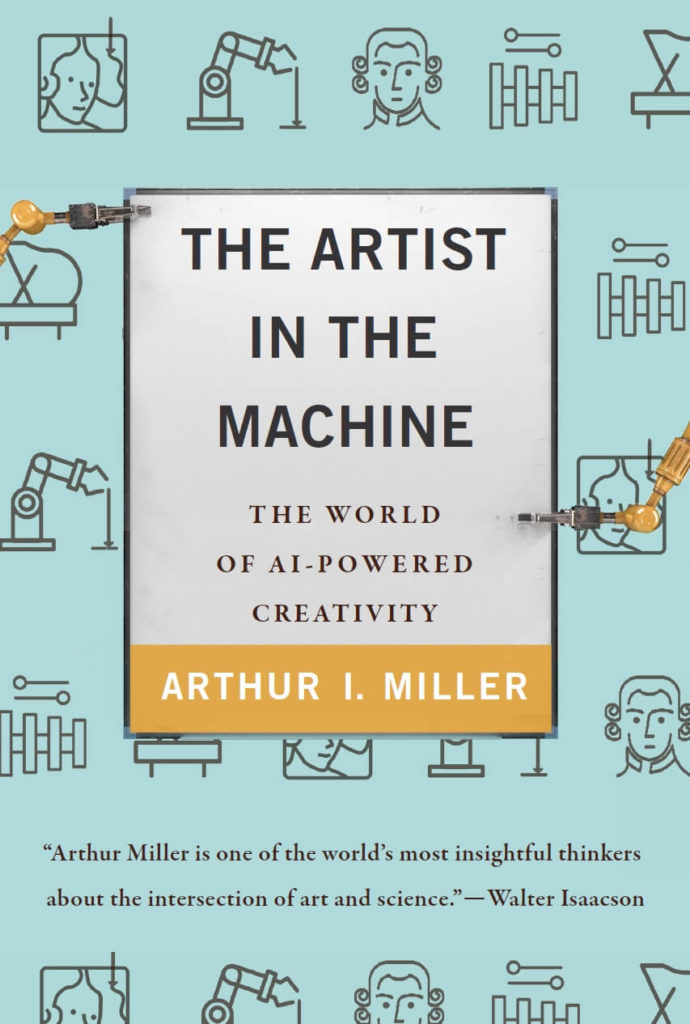For more – much more – please see ArtistintheMachine.net

In The Artist in the Machine: The World of AI-Powered Creativity Arthur I. Miller takes us on a tour of creativity in the age of machines.
Today’s computers are composing music that sounds “more Bach than Bach,” turning photographs into paintings in the style of Van Gogh’s Starry Night, and even writing screenplays. But are computers truly creative—or are they merely tools to be used by musicians, artists, and writers?

“Arthur Miller is one of the world’s most insightful thinkers about the intersection of art and science. In this profound book, he takes on a key question in the impending age of artificial intelligence: Can computers be creative? Readers will be fascinated by his analysis of the unexpected talents of computers and also the more fundamental issue of what creativity actually is. It’s an important book for anyone who wants to understand the role we humans will play in a technologically-driven future.”
Walter Isaacson, Professor of History, Tulane University
“With this quite extraordinary book Arthur Miller has produced an essential, readable and highly intelligent account of the manner in which machines can – and surely soon will – become involved in the process of creativity. In art, poetry, music and thinking – computers are now teetering on the brink of true consciousness – with implications both tantalizing and terrifying, as this necessary book so eloquently illustrates.”
Simon Winchester, author of The Perfectionists: How Precision Engineers Created the Modern World (Harper)
“Arthur I Miller is widely acclaimed as a scholarly, insightful and prolific thinker whose earlier books have illuminated the symbiosis between the arts and sciences. ‘The Artist in the Machine’ addresses a hugely important new topic: he recounts many instances where artistic creativity is already being nourished by interaction with artificial intelligence – and speculates on the capabilities of more powerful machines. This fascinating book deserves wide readership.”
Martin Rees, UK Astronomer Royal, author of On the Future: Prospects for Humanity